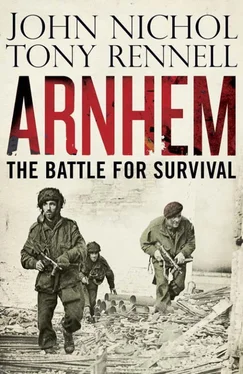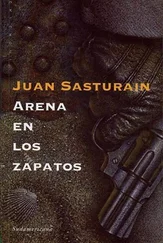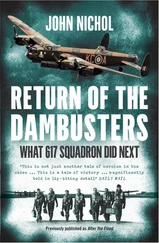He rolled himself out through the window of the moving train. ‘Made a good landing beside the railway track just clear of the turning wheels. The train stopped quickly and the track was searched. I rolled down the embankment and lay doggo in the grass. There was a bit of shooting into the shadows but then the train moved off. I’d done it. I’d escaped.’ He moved on, ploughing across marshy fields and through ditches, trying not to think what the filthy water was doing to his already festering wounds. He broke into a barn and fell asleep, and was discovered by the friendly farmer next day. He was in good hands, though his rescuer was cagey at first. ‘It seems the Huns have been running around in our uniforms asking for help and when given it shooting and burning.’ Soon he was with the Resistance, and totally dependent on them. His legs had packed up on him completely and he had to be carried or tugged along on a bicycle. He was lodged with a family and laid up in bed for weeks to get better. The risks his hosts were taking troubled him greatly. ‘The penalty for helping the likes of me is death.’
It was late November before he left them. His legs were better, and it was time, he decided, ‘to try to get back and fight another day’. He moved to another family living closer to the Rhine but there was to be no quick resolution. He was still there on 9 December, his twenty-sixth birthday, which they celebrated with a party that had unexpected and uninvited guests. ‘The eldest daughter and I were playing “Silver Threads among the Gold” on the piano when some Germans knocked on the door. They had heard the music and asked to come in and sit and listen. We just kept on playing. There was nothing else I could do except sweat a little.’ By this point, the botching of Pegasus II had caused all organized escapes to be stopped. Christmas – the one by which the war was supposed to be over – beckoned and Davis was still a long way from home. On Boxing Day, the lieutenant got the most unseasonal of gifts. The condition of his right leg had been deteriorating over the weeks and needed an operation to save it. A Dutch surgeon was found and, at a safe house – surrounded by armed Resistance fighters in case the Germans arrived – Davis climbed on to the kitchen table, was given a spinal injection and waited to be carved up. ‘The doctor opened my leg from the back of my knee to my rump. His anatomy book lay by my side and gradually got covered with bloody finger marks. He could not find one end of a broken nerve because a bullet had severed it at an angle and taken quite a section out. He insisted on showing me the problem with a mirror but I told him to just find the end and join it up, and we would worry about getting my leg straight afterwards. The end was found, my knee bent up at an angle of 90 degrees and the nerve sutured. Three hours after starting, the doctor sewed me up and we all had a drink. I felt quite bucked because I didn’t pass out once!’ The surgery left him immobilized. Escape was out of the question.
As 1945 began, conditions worsened in the Netherlands. Food was scarce, crackdowns by the Gestapo more frequent. There were executions. One of Davis’s doctors was arrested, so too was a female courier carrying a letter to him about escape plans, though thankfully it wasn’t found on her, despite a strip-search. The net seemed to be closing in on him. ‘Life here is getting vicious,’ he wrote in his diary. ‘Everyone is edgy.’ The house was raided at one in the morning but, luckily, he was tucked up in his special hiding place and was not found. Then, on 19 March came the news he had been waiting for. He was to prepare for the first leg of his journey home. ‘Cycle to Apeldoorn; had my hair cut in civilian barber shop, next to Huns there doing the same thing. Arrive at a house known as the Submarine Base because of its hidden tunnels and chamber. It is a collecting and transit place for people like me. Padre Bill Pare is one of those here.’ A few days later, the Germans pounced. ‘It was a lightning raid and I had no time to go underground and hide, so I just sit in the garden and act the Dutchman. Exciting, but got away with it.’
His journey stalled. A crossing was on, then it was off. In the first week of April there was news that Canadian forces were close by. ‘However, the Underground will not help us to get to them because it would be too dangerous. They say we must wait, but I decide I’m going to move without them.’ He set out with five others. ‘The Boche seem to be everywhere. They are retreating and in a nasty mood.’ He headed for Apeldoorn, where the Canadians were reported to be on the town outskirts. ‘Started off well enough but then three of our party decided the roads were too dangerous and returned to their old farm hideout. Travelling on foot was too slow so the remaining three of us stole bikes. During this, one went missing and so we were down to two. There are Germans everywhere. Can’t get away from them.’ When they got to Apeldoorn, a massive battle was going on. ‘Shells, mortars, machine guns and small arms and searchlights flashing in the sky. We left the bikes and clambered over some railings into some parkland. We were almost run down by a wild boar the size of a donkey and then walked into a Hun sentry. We ran for it, back into the woods.’ For the next forty-eight hours they dodged German troops, at one point lying face down in a gutter as a platoon marched by.
‘ 16 April 1945. Did a foot recce to the canal that runs through Apeldoorn, with the Canadians on the other side of it. I decided to sleep tonight and swim the canal tomorrow night. 17 April 1945 . This morning discovered the Canadians had crossed the canal during the night, so swim not necessary. The Boche are beating it – getting out of town in quick time. Walk down the street into Canadian territory – FREE at last!’
Two weeks later, Hitler was dead in his bunker, and a week after that Germany surrendered. Now was the time for the very last of the Arnhem survivors – the prisoners of war – to make the long trek home too. It is difficult to give an overall verdict on how the Airborne fared in captivity, because each man served his time in his own way. Many were upset and ashamed when they had to surrender and may never have exorcised those feelings. They felt tainted in some way, their reputations blemished. Some undoubtedly felt they had been abandoned, and resented it. But if they suffered recriminations in this way, they did so alone. There was, it appears, no collective breast-beating among the Airborne. Signaller Leo Hall recalled that ‘neither in the hospitals nor in the stalags was there any desire to discuss the battle or its outcome. The subjects were never raised. There was no introspective brooding at all.’ He himself remained positive. ‘I didn’t take the defeat badly and I’m glad about that. For me it was a kind of victory. I’d been tested and had come through it all with something to spare, and in doing so I’d let nobody down.’
Airborne esprit de corps seems to have remained strong and gave a fillip to the thousands of other British prisoners of war the Airborne now mingled with, largely in Stalag XIB at Fallingbostel in northern Germany. Longstanding inmates there, some of whom had been in captivity since Dunkirk, remembered the men from Arnhem marching through the camp gates led by the ramrod figure of Regimental Sergeant-Major John Lord with all the swagger of the guardsman he had been before joining the paras. One prisoner of war remembered Lord ‘snapping a salute which would not have been out of place at Pirbright or Caterham. We found ourselves instinctively standing to attention. The impression on the Germans was incredible.’ [10] Quoted in Nichol and Rennell, op. cit.
The compound was overcrowded and in a state of near-chaos, but Lord took charge and, as best as anyone could in those awful conditions, imposed airborne discipline and standards of dress and behaviour. Few dared cross his fearsome personality and rough tongue. He had his work cut out. James Sims was appalled by the attitudes he encountered in the camp. ‘There was no mucking-in spirit. It was just dog eat dog and the weakest to the wall.’ He remembered bitter arguments and fist fights breaking out over the smallest of disagreements, and brawls between men of different regiments.
Читать дальше












